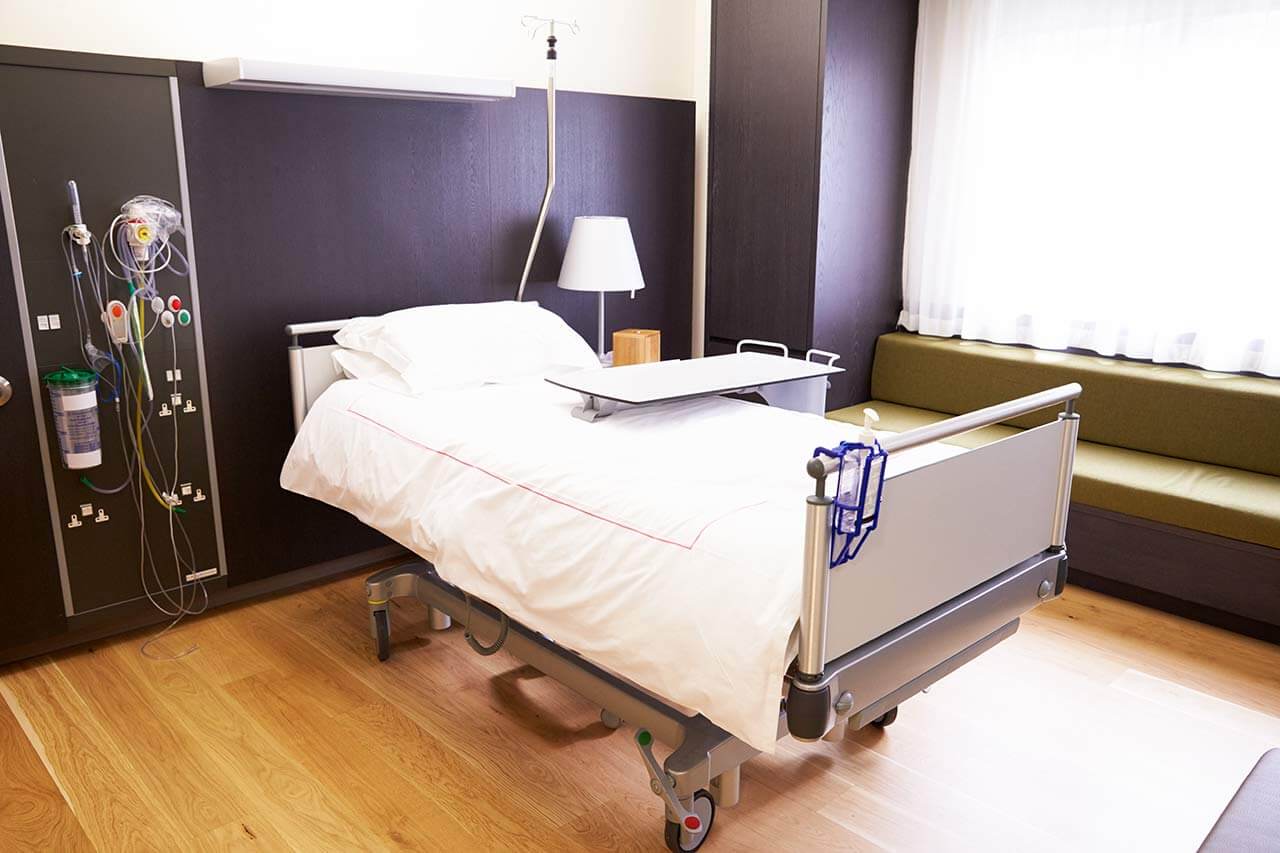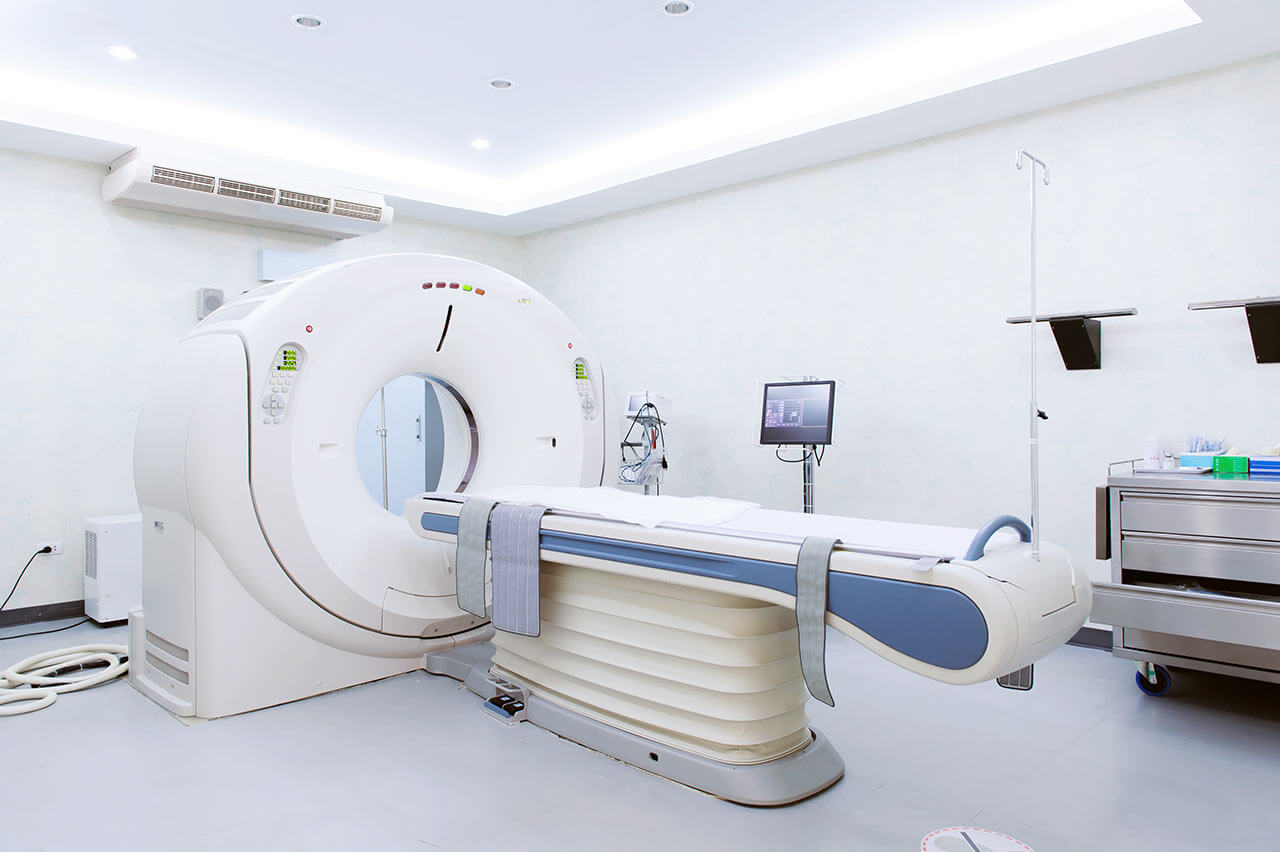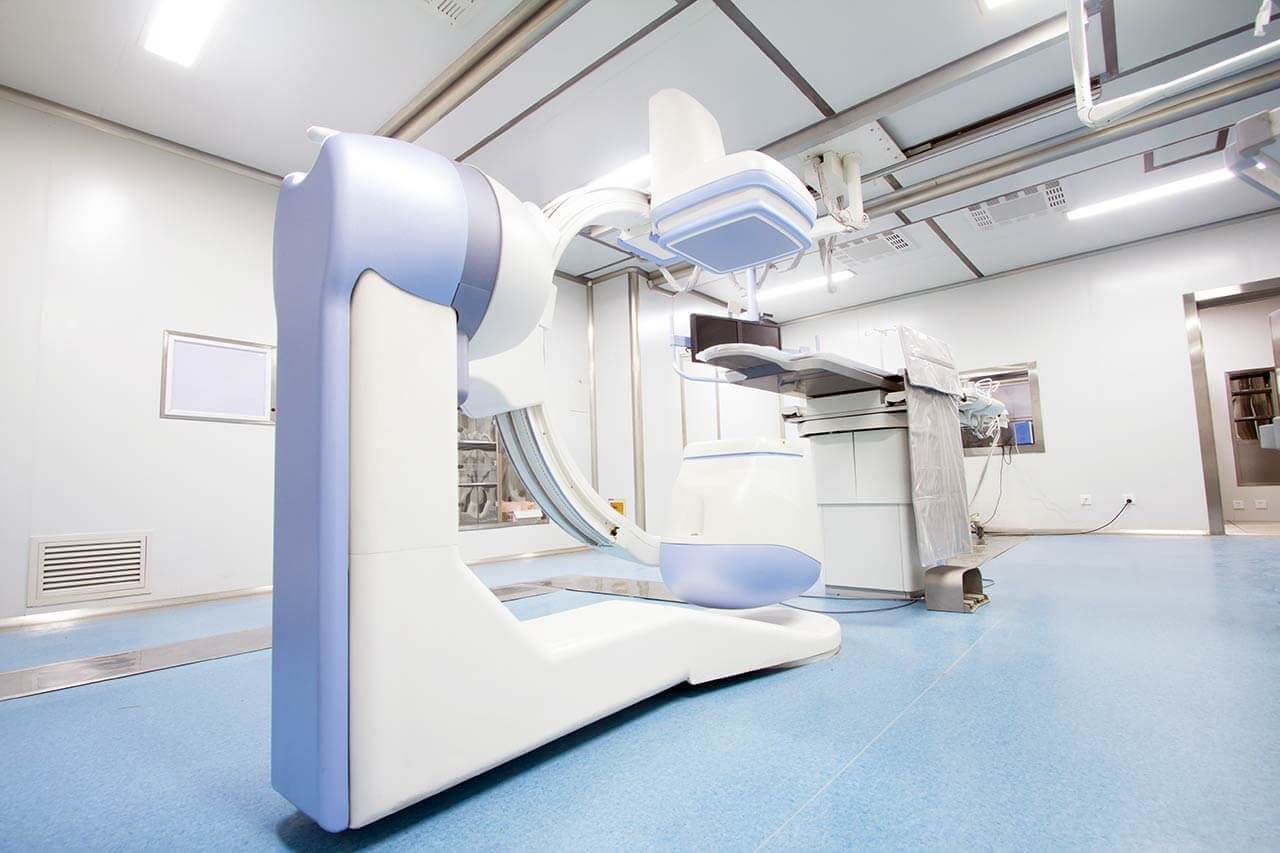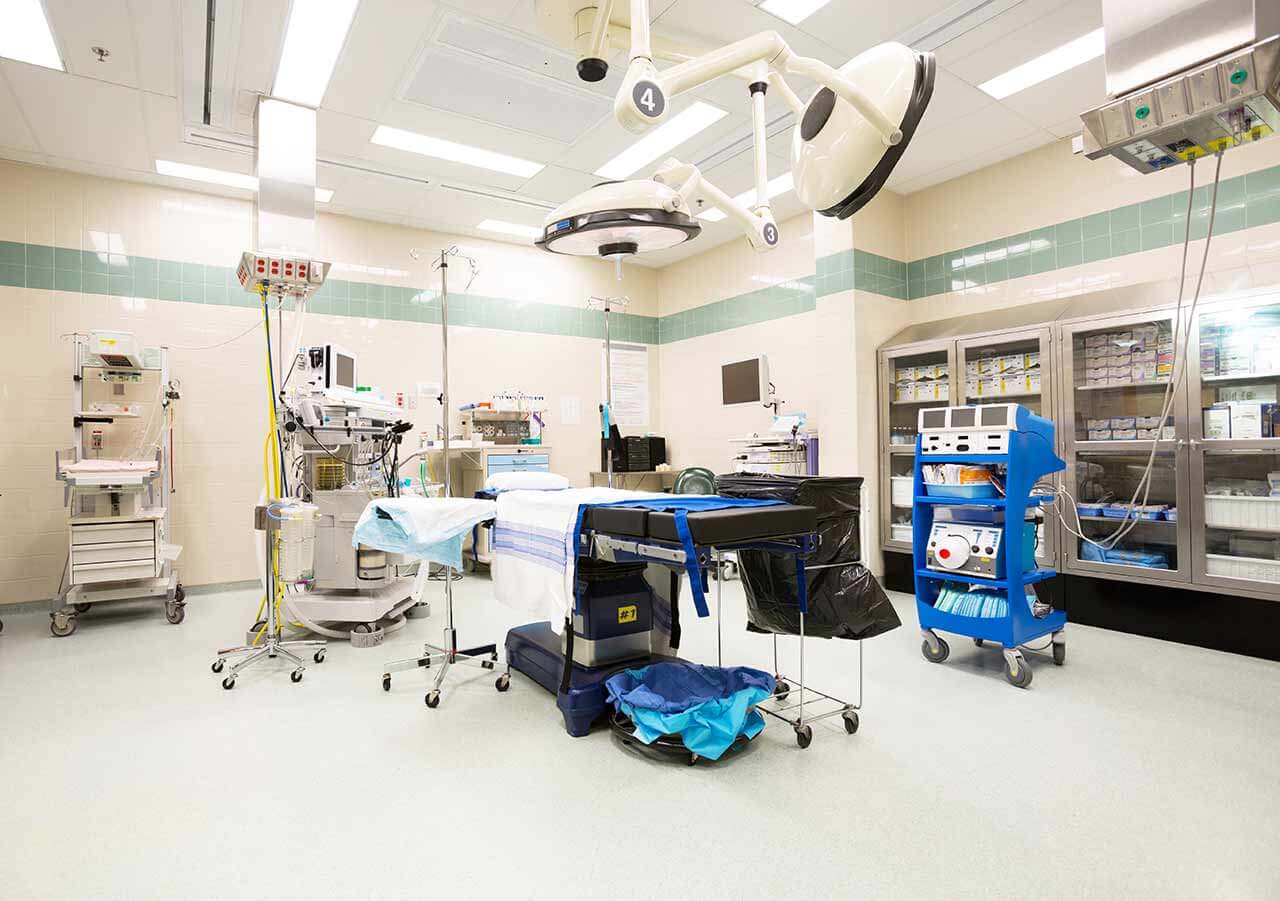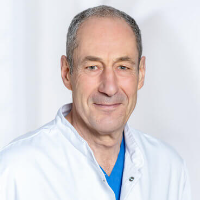
The program includes:
- Initial presentation in the clinic
- clinical history taking
- review of medical records
- physical examination
- laboratory tests:
- complete blood count
- biochemical analysis of blood
- mineral metabolism analysis (Na, K, Ca, Mg)
- lipid metabolism (HDL/LDL, cholesterol,
triglycerides Lip(a), homocysteine) - inflammation indicators (CRP, ESR)
- indicators blood coagulation
- blood gas analysis
- chest x-ray examination
- holter monitoring (24h)
- measurement of arterial blood pressure
- electrocardiogram (ECG)
- pulmonary function test
- echocardiography
- doppler echocardiography
- high-resolution computed tomography (HR-CT)/MRI (on indication 950/1200€)
- CT angiography (on indication 1350€)
- nursing services
- consultation of related specialists
- treatment by chief physician and all leading experts
- explanation of individual treatment plan
(the cost of medicines is not included)
Required documents
- Medical records
- Echocardiography (if available)
Service
You may also book:
 BookingHealth Price from:
BookingHealth Price from:
About the department
The Department of Pediatric Cardiology at the Charite University Hospital Berlin provides a full range of medical services for infants, children, and adolescents with heart diseases. The department has been working for more than 35 years, ensuring excellent quality of treatment of the highest international standard. The main focus of clinical practice is the treatment of congenital and acquired heart defects in children using the latest catheter techniques. Over years of successful work, specialists have developed unique algorithms for providing effective care to children with complex heart defects. The department's infrastructure deserves special attention – comfortable diagnostic rooms, an intensive care unit with modern monitoring systems, two advanced cardiac catheterization laboratories, a hybrid operating room, a specialized outpatient clinic for the treatment of congenital heart defects, and a specialized Competence Center for counseling adults with congenital heart defects certified by EMAH. Thanks to advanced technologies, highly qualified specialists, and many years of experience, the department holds a leading position in Europe among the best pediatric cardiology clinics. All diagnostic and therapeutic services are provided in strict accordance with the requirements of the German Society of Pediatric Cardiology (DGPK), the European Society of Cardiology (ESC), and the International Society for Interventional Cardiology in Congenital Heart Disease (ISICCHD). The Head Physician of the department is Prof. Dr. med. Felix Berger.
An important structural unit of the department is a block with two cardiac catheterization laboratories, where both diagnostic studies and minimally invasive therapeutic procedures are performed. More than 800 diagnostic and therapeutic interventional procedures are performed annually in the department's modern cardiac catheterization laboratories. The experience of the department's pediatric cardiologists, minimization of radiation exposure, and technical innovations ensure maximum safety and effectiveness in the treatment of young patients.
The cardiac catheterization laboratories have a special interest in the examination and treatment of newborns with severe congenital heart defects. The department's team of pediatric cardiologists specializes in balloon dilation of all heart valves and stenotic vessels, including high-frequency therapy for pulmonary artery atresia and stenting. Interventional procedures are also successfully performed for atrial and ventricular septal defects. The spectrum of therapeutic procedures is complemented by interventions to close the patent ductus arteriosus – the department's specialists have unique experience in performing such catheter procedures even in premature infants weighing at least 1000 grams. Catheter treatment of all types of vascular malformations and renal artery stenosis in childhood is also performed here.
The department has the status of an Expert Center for interventional pulmonary valve replacement with innovative devices such as Melody, Sapien, Venus P Valve, and Harmony Valve. Such interventions are performed in the cardiac catheterization laboratory.
The team of pediatric cardiologists in the department also specializes in the diagnosis and treatment of cardiac rhythm disorders in children. More than 1,500 young patients suffering from arrhythmia receive help here annually. Treatment in this area includes all methods available in modern cardiology: drug therapy, catheter interventions for the installation of pacemakers and implantable cardioverter-defibrillators, radiofrequency ablation (also with 3D mapping), and cryoablation.
The range of medical services provided by the department includes:
- Diagnostic capabilities
- Non-invasive diagnostics
- Electrocardiography, including long-term ECG monitoring and stress ECG
- Echocardiography
- Computed tomography
- Magnetic resonance imaging
- Catheter diagnostics
- Coronary angiography
- Vasoreactivity testing for suspected pulmonary hypertension
- Non-invasive diagnostics
- Therapeutic capabilities
- Drug therapy
- Catheter interventional procedures
- Balloon dilation and stenting for stenosis of heart valves and vessels
- Closure of atrial septal defect and patent ductus arteriosus using special probes
- Catheter replacement of the pulmonary valve with Melody, Sapien, Venus P Valve, Harmony Valve systems
- Catheter treatment of vascular malformations
- Catheter treatment of renal artery stenosis
- Catheter treatment of arrhythmias
- Installation of pacemakers and implantable cardioverter-defibrillators
- Radiofrequency ablation (also with 3D mapping)
- Cryoablation
- Hybrid interventions
- Other methods of diagnosis and treatment
Curriculum vitae
- 1979 - 1986 86 Study of Medicine at the Kiel University.
- 1986 Medical License.
- 2000 Medical Specialist in Pediatrics, focus – Pediatric Cardiology.
- 2003 Habilitation in Pediatrics, University of Zurich.
- Senior Physician of the Department of Pediatric Cardiology and Head of the Cardiac Catheterization Laboratory for invasive diagnostics and interventional therapy (German Cardiology Center Berlin).
- Leading Physician of the Department of Pediatric Cardiology, University Hospital Zurich.
- 2004 Appointed as Professor (for life) and Head of the Department of Pediatric Cardiology at the Charite University Hospital Berlin.
Clinical Focuses
- Non-invasive imaging (MRI, echocardiography).
- Resynchronization therapy.
- Interventional procedures to replace heart valves with the use of Melody or Edwards Sapien artificial valves.
- Application of bloodless treatment methods.
- Hybrid techniques for the treatment of congenital heart diseases.
Photo of the doctor: (c) Charité – Universitätsmedizin Berlin
About hospital
According to the reputable Focus magazine, the Charite University Hospital Berlin ranks 1st among the best healthcare facilities in Germany!
The hospital is one of the largest and leading university medical complexes in Europe, and also consistently holds leading positions in the international medical arena. The Charite operates on the basis of the Faculty of Medicine of the Free University of Berlin and the Humboldt University of Berlin. Patients are offered modern diagnostics and treatment with the very latest methods, many of which were developed by professors and scientists of the medical complex. More than half of all German Nobel Prize winners in medicine and physiology, such as Emil von Behring, Robert Koch, and Paul Ehrlich, studied and worked at the Charite University Hospital Berlin. The medical complex includes more than 100 specialized departments and institutes, which helps to ensure that patients receive care in all existing medical specialties. The hospital has exceptional experience in treating complex clinical cases.
Each year, the hospital treats more than 137,800 inpatients and more than 787,700 outpatients. The hospital has a bed capacity of 3,293 beds. A huge medical team consisting of 5,670 scientists and doctors and more than 6,000 nurses work for the benefit of the patients. The main task of all specialists of the medical facility is to restore the patient's health or save his life in critical cases. The hospital has a friendly atmosphere where every patient feels care, respect and empathy.
The Charite University Hospital Berlin is generously funded by the German government, which is why it offers patients the latest generation of excellent equipment and comfortable infrastructure. The Charite medical complex is equipped with da Vinci robotic surgery systems, laser technologies, equipment for endovascular catheter-based interventions, neuronavigation devices, intraoperative monitoring systems, equipment for proton therapy available only in the most advanced medical centers in the world, and many other technologies. All these resources, combined with the experience and professional skills of the hospital's doctors, are the key to providing the most effective and safe treatment in accordance with the highest international medical standards.
The hospital is recognized with a huge number of quality certificates, including DIN EN ISO 9001:2015, certificates from the German Cancer Society (DKG), the German Society for General and Visceral Surgery (DGAV), the German Society for Thoracic Surgery (DGT), the German Hernia Society (DHG), and the ERAS Society.
The Charite University Hospital Berlin is a benchmark in the European healthcare system. Patients therefore receive impeccable medical service, quality care, and personalized service that puts the patient and their individual needs first.
Photo: (с) depositphotos
Accommodation in hospital
Patients rooms
The patients of the Charite University Hospital Berlin live in comfortable rooms made of modern design. Each room is equipped with an ensuite bathroom with a toilet and a shower. The standard room furnishing includes an automatically adjustable bed, a bedside table, a wardrobe for storing clothes, a table and chairs for receiving visitors, and a TV. If desired, Wi-Fi access can be provided. The hospital also offers enhanced-comfort rooms.
Meals and Menus
The patient and his accompanying person have a daily choice of three menus. If for any reason, you do not like the food, you will be offered an individual menu. Please inform the medical staff about your dietary preferences before the treatment.
Further details
Standard rooms include:
Religion
Religious services are available upon request.
Accompanying person
During the inpatient program, an accompanying person may stay with you in a patient room or at the hotel of your choice.
Hotel
During the outpatient program, you can live at a hotel of your choice. Managers will help you to choose the most suitable options.
The hospital offers a full range of laboratory tests (general, hormonal, tests for infections, antibodies, tumor markers, etc.), genetic tests, various modifications of ultrasound scans, CT scans, MRI and PET / CT, angiography, myelography, biopsy and other examinations. Treatment with medications, endoscopic and robotic operations, stereotaxic interventions is carried out here, modern types of radiation therapy are also used. The hospital offers patients all the necessary therapeutic techniques.
- Proton therapy
- CyberKnife treatment
- Hyperthermic intraperitoneal chemotherapy (HIPEC)
- PSMA therapy with Lutetium-177
- Joint replacement in adults and children
These are oncological diseases, benign neoplasms of the brain and spinal cord, heart valve defects, diabetes mellitus and its complications, joint diseases and other pathologies.
- Neurosurgery
- Oncology
- Plastic and reconstructive surgery
- Interventional radiology
- Proton therapy (Proton Therapy Center BerlinProtonen)
The medical team includes more than 4,225 highly qualified scientists and doctors.
